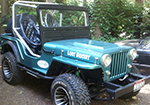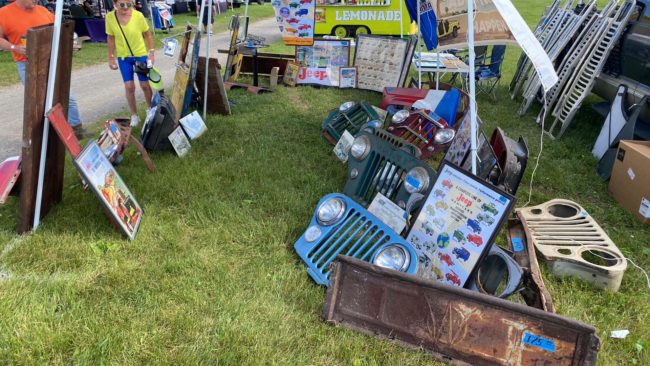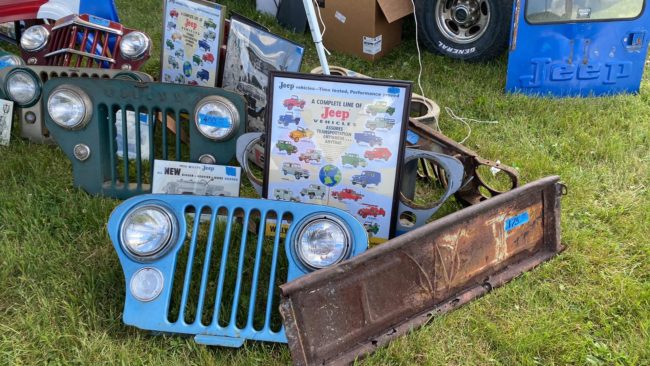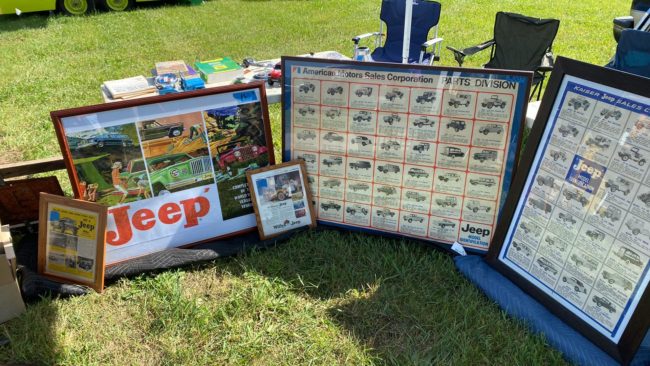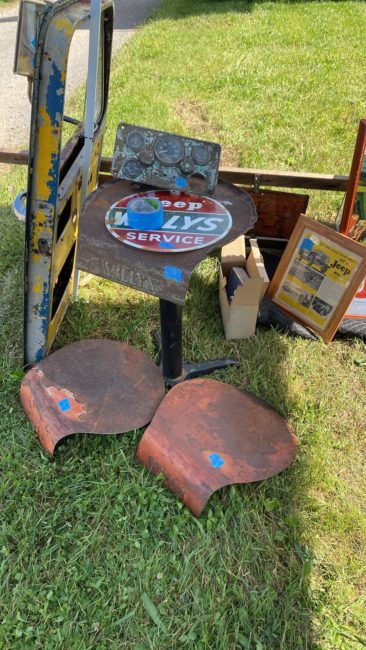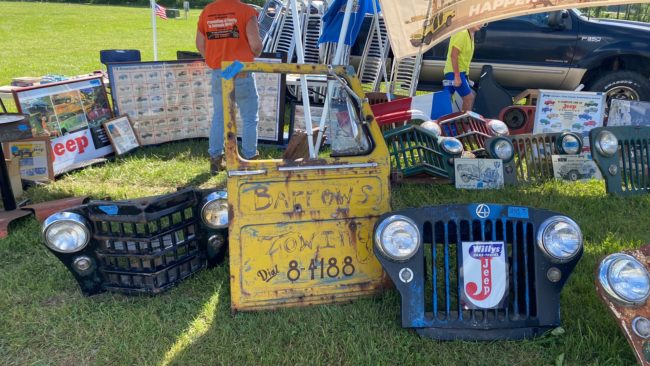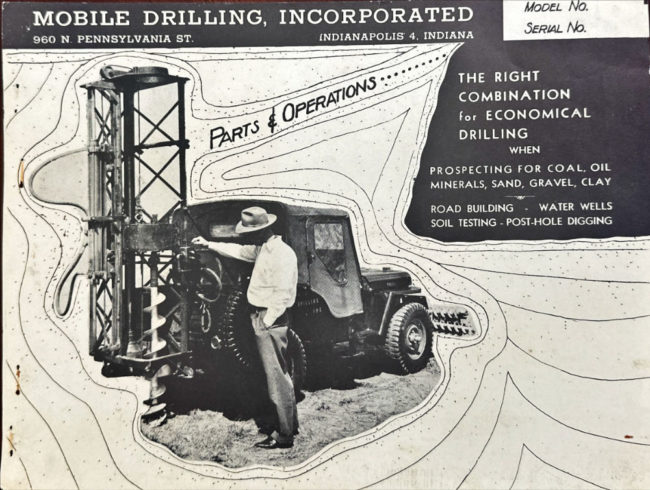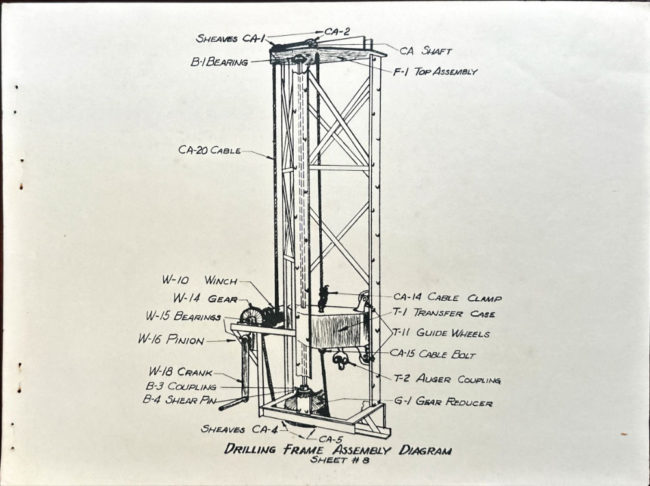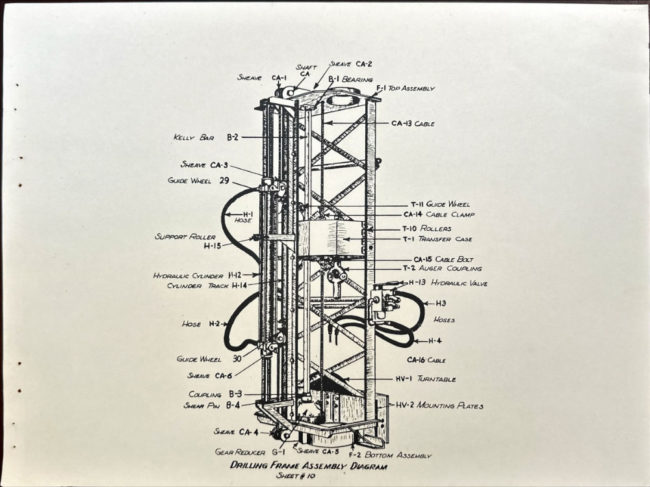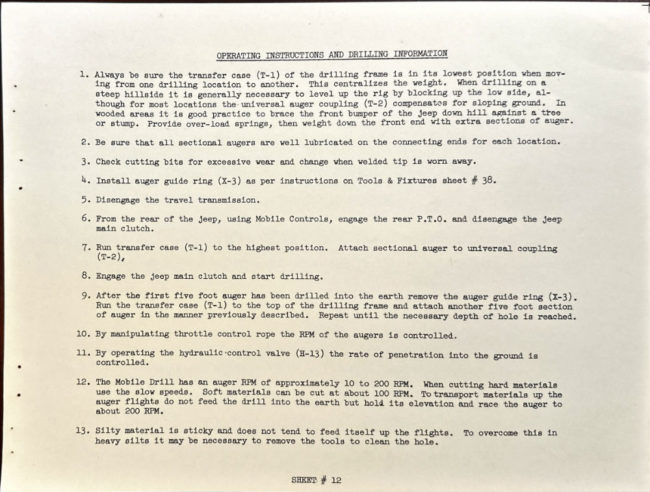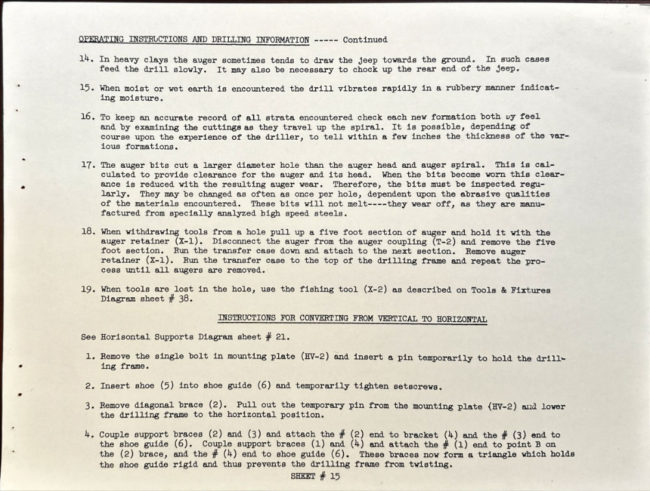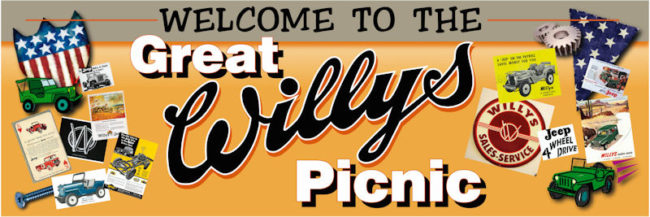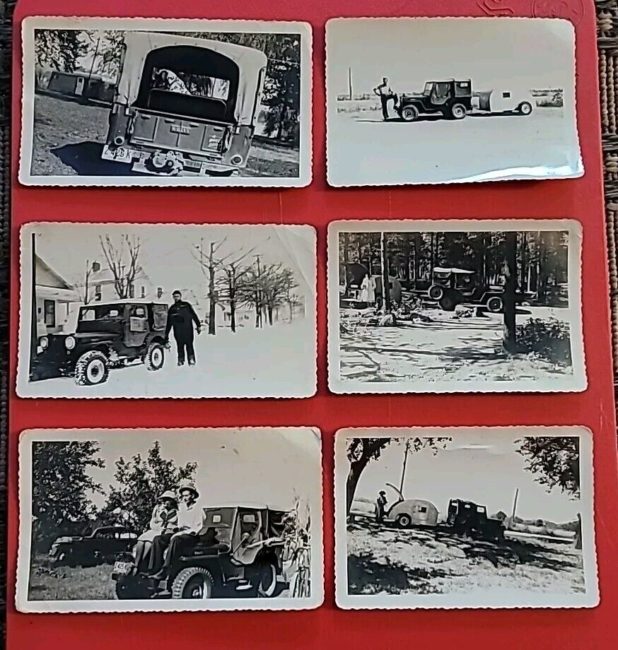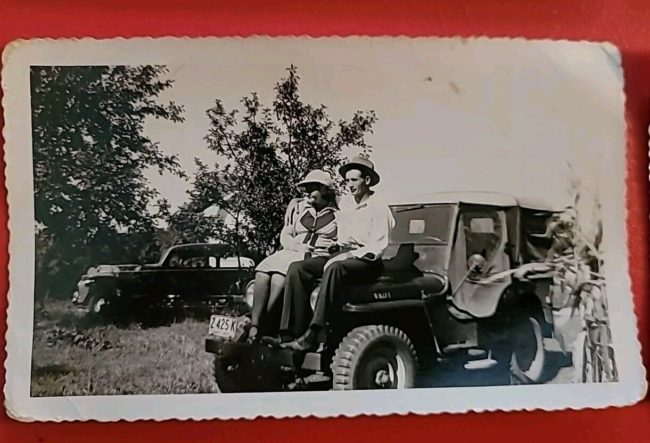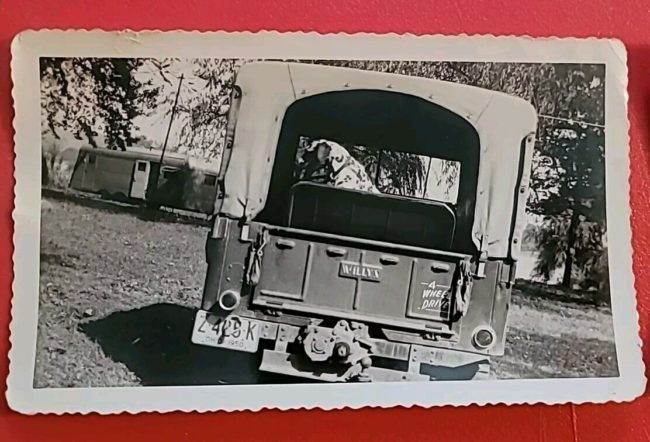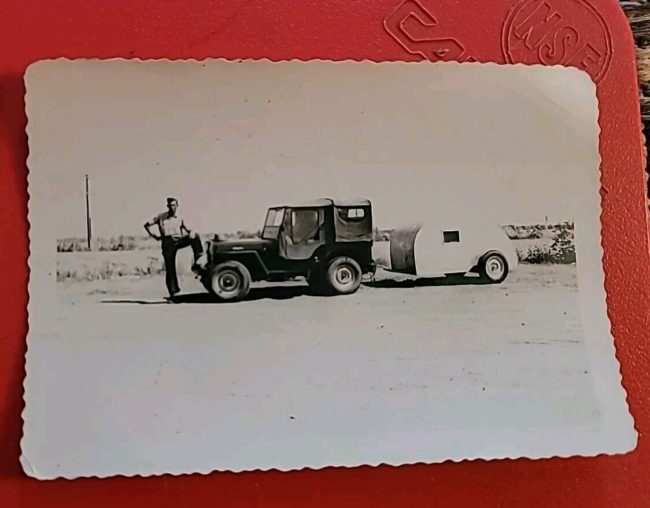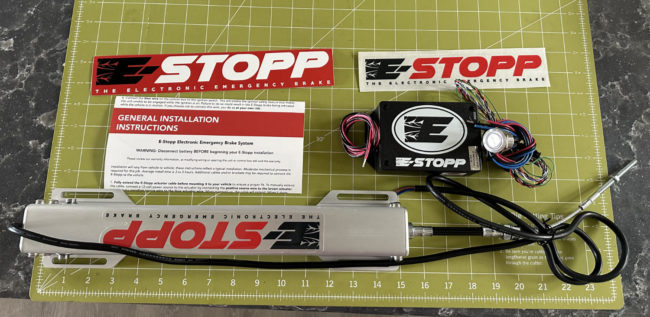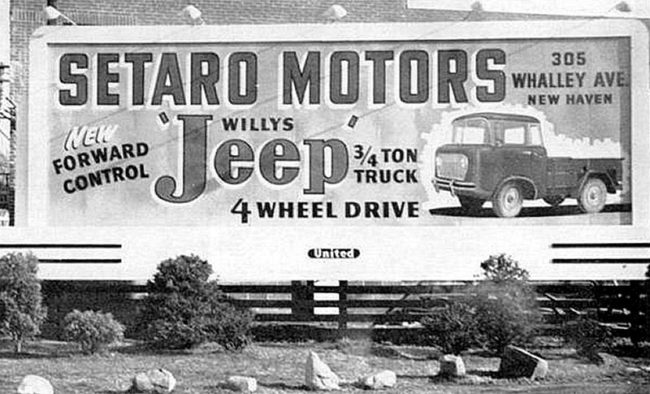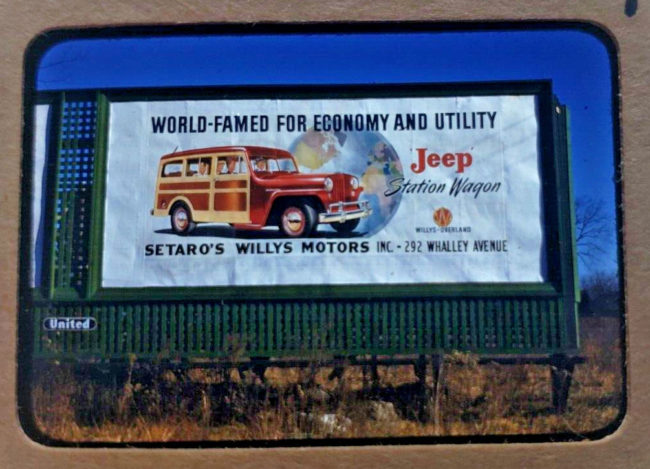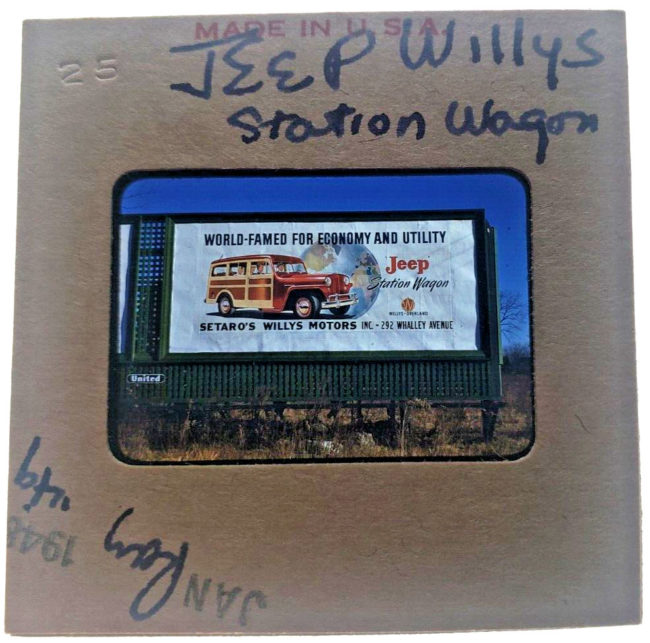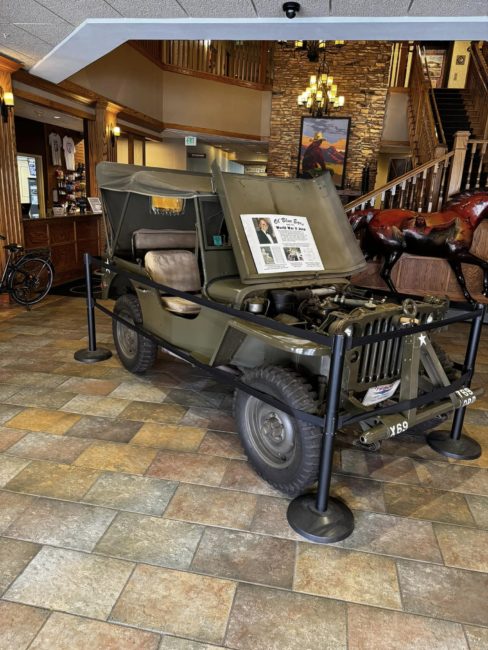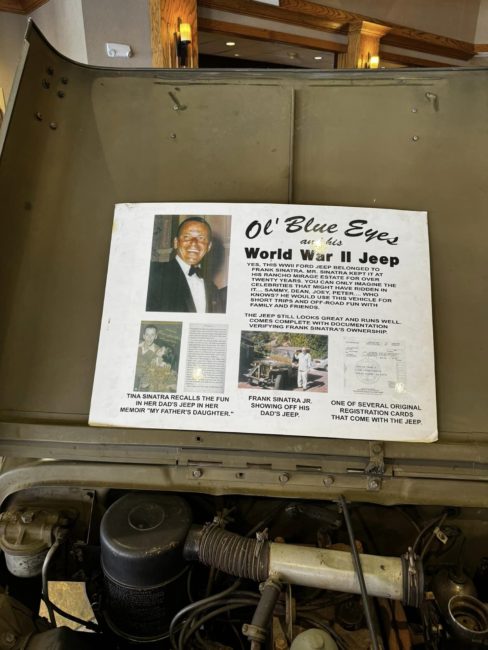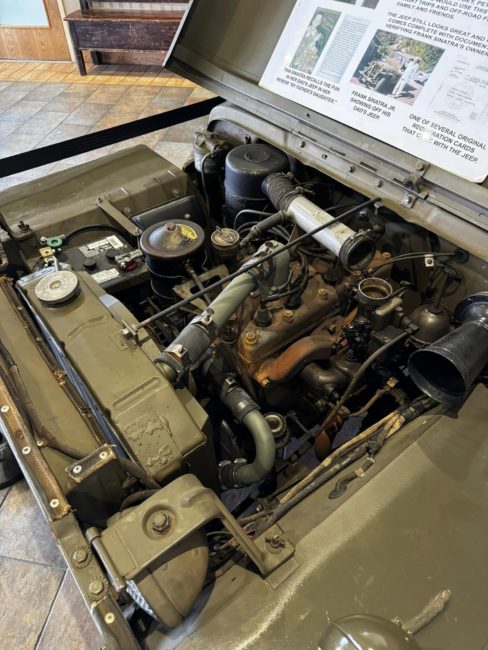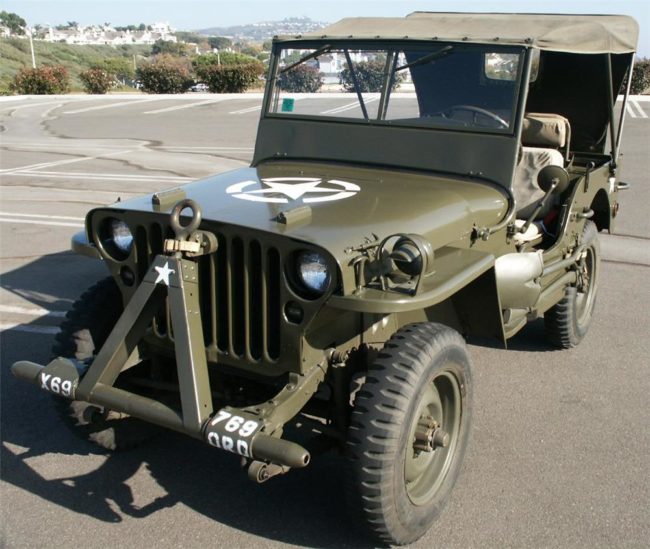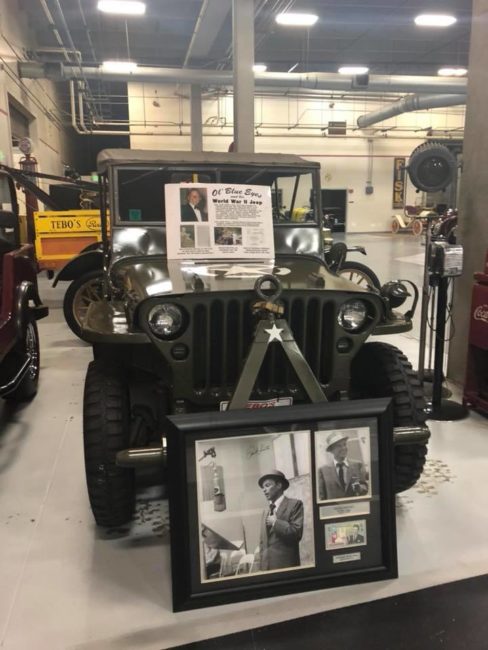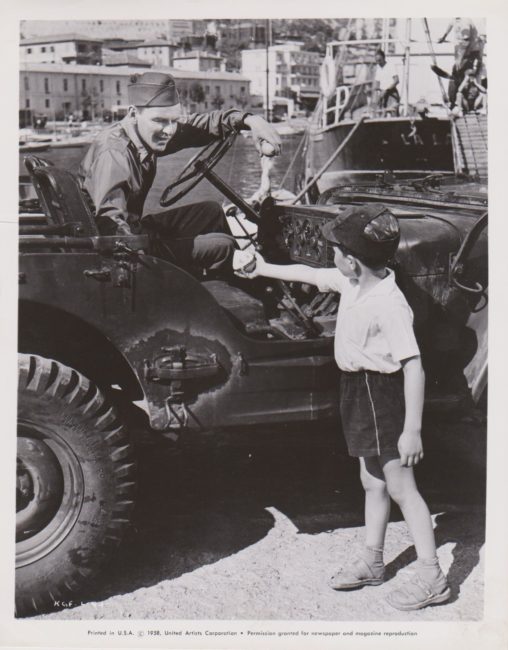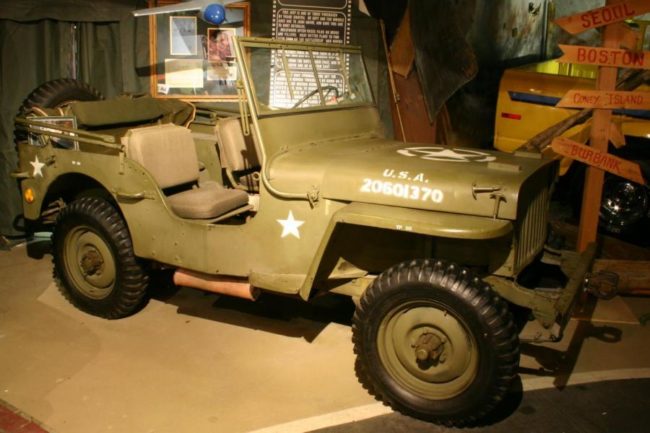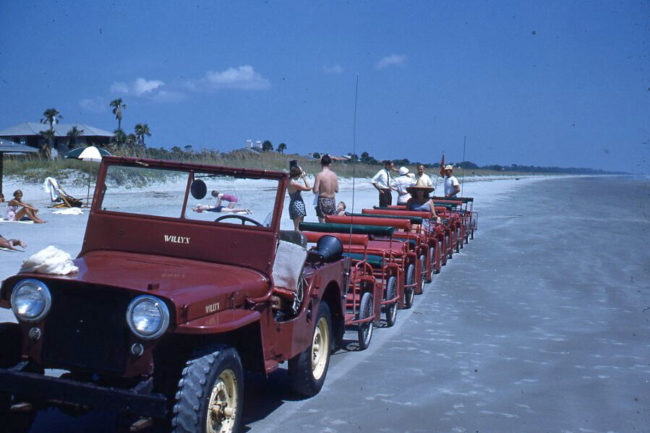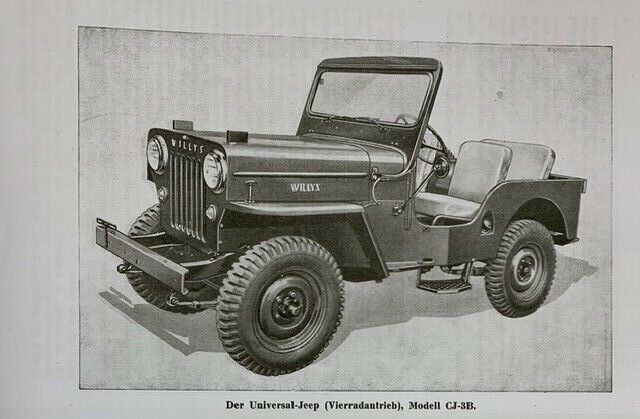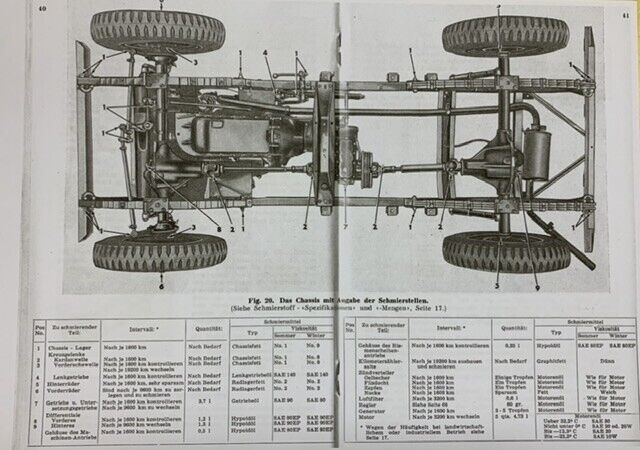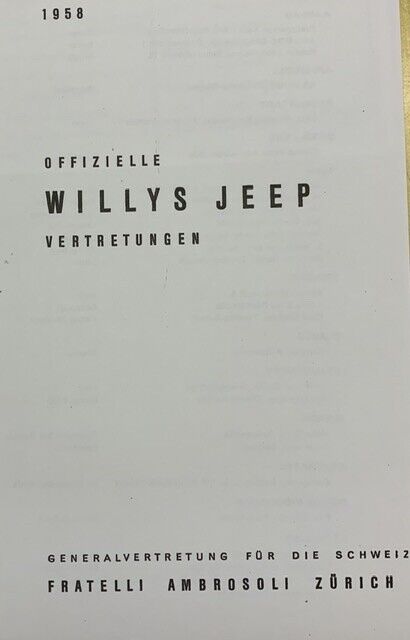Chris, aka thegrilleguy, is selling a variety of things at this year’s Bantam Jeep Festival, so drop by and say hello.
Features Research Archives
Mobile Drill Brochure Parts & Operations
This 22 page brochure is something I found on a non-ebay auction. I had to buy it with some other stuff I already had, but I couldn’t pass up this rare (perhaps 1-of-a-kind) brochure. I hope it helps someone down the line.
Great Willys Picnic and Bantam Fest This Weekend
Long Range Desert Group Lighter
This tiny LRDG-styled lighter is something I’d been keeping an eye out for. It’s smaller than I expected, just slightly larger than a biz card (or in this case a Fred Smiley’s old club card, which is something that accompanied a different purchase). I forgot to take a photo of the bottom, but there’s no identifying information there.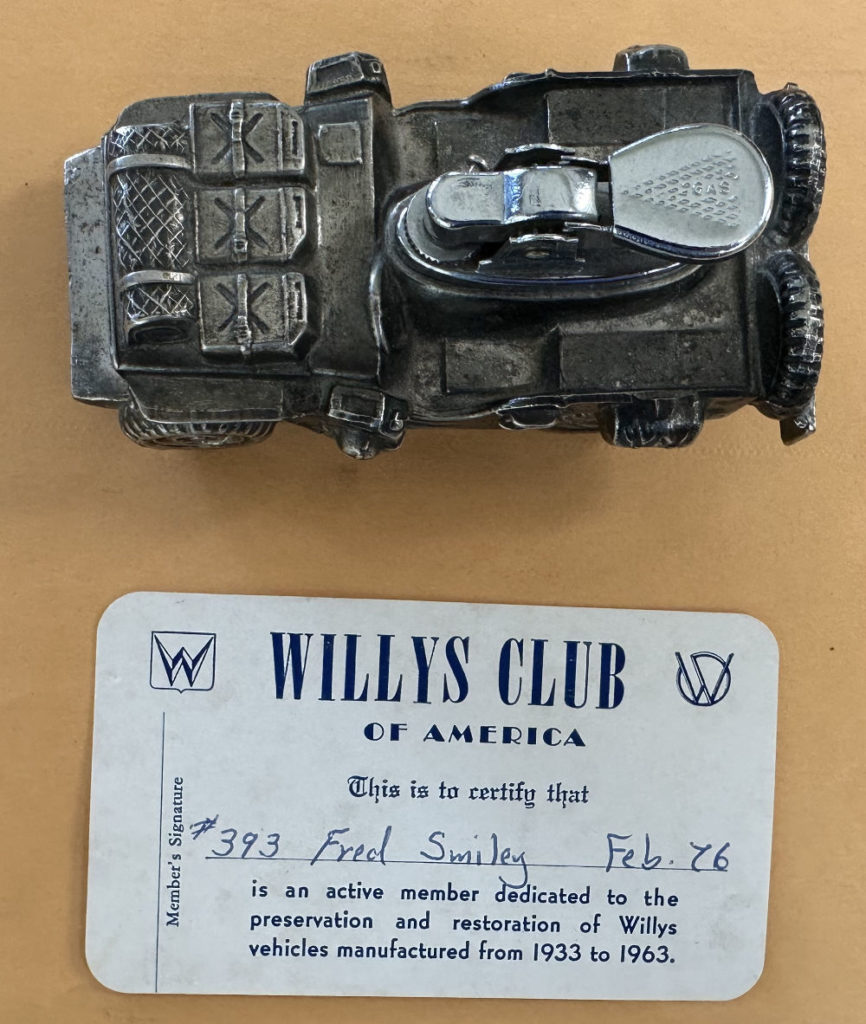
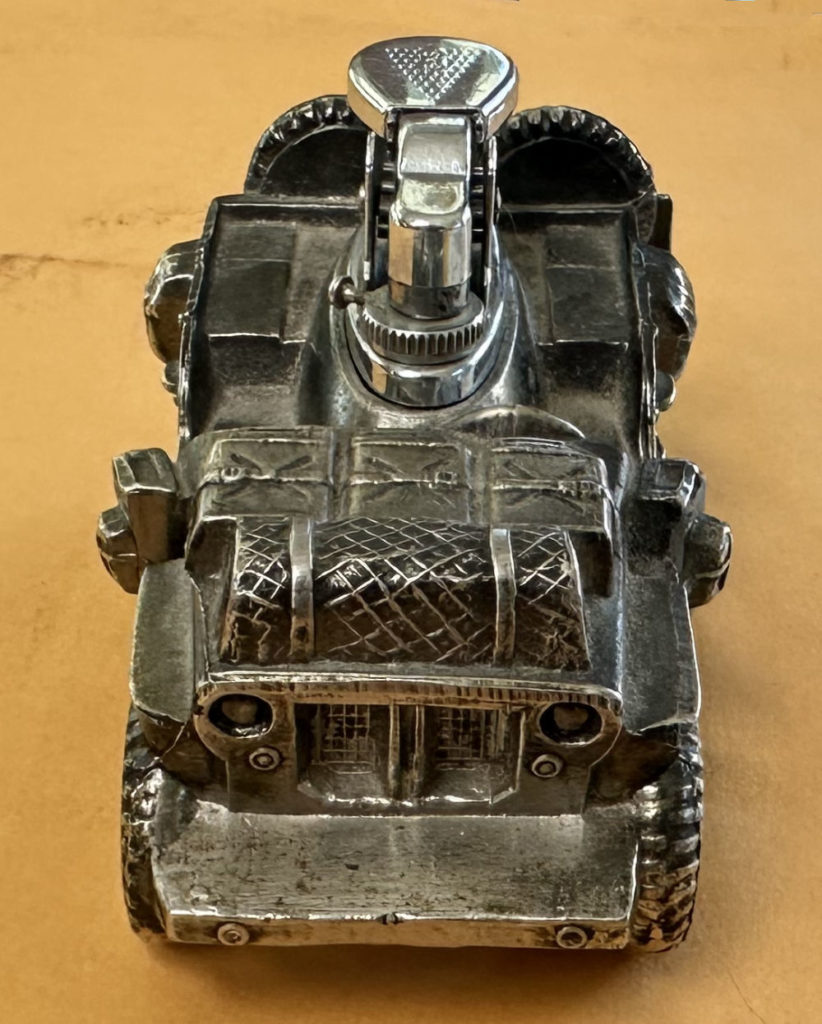
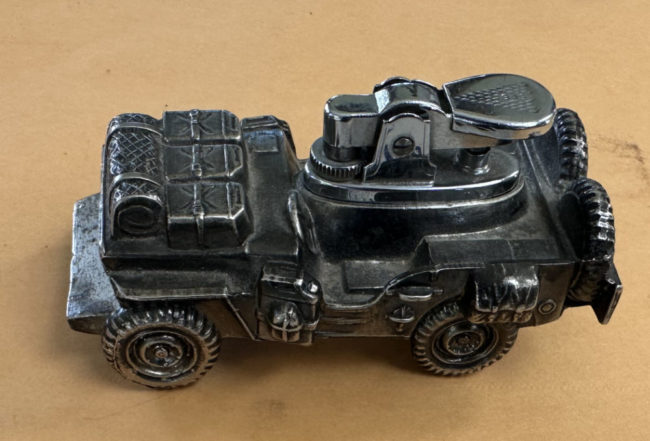
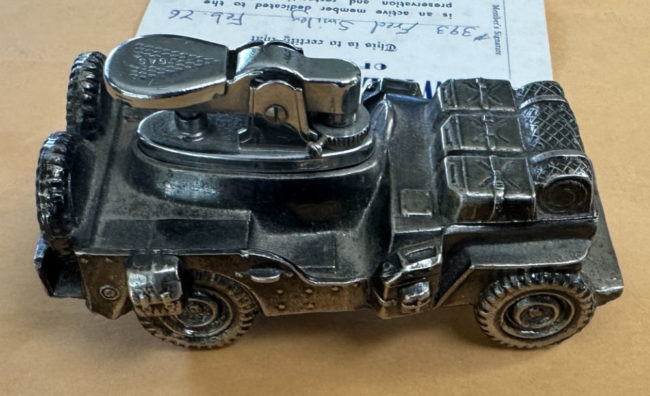

1950? Photos of CJ-2A
These just sold on eBay for $9.99. This CJ-2A was equipped with a rear PTO.
E-Stopp Parking Brake Arrived Today
The tour jeep’s E-Stopp parking brake arrived today. I couldn’t get a very good sense of the size on the seller’s website, so I have photographed it on one of Ann’s cutting boards.
1949 Slide Showing Billboard w/ Wagon on eBay
UPDATE: Matt thought I should add this billboard to this thread.
==========================
This really neat color slide documents a Setaro’s Willys Motors Billboard ad. The only issue I see is the price of $79.99! Setaros was in New Haven, CT. I’ve included an ad published in the Yale Daily News Newspaper from January 13, 1948.
View all the information on eBay
“Original Kodachrome Red Border Slide 1949 – Jeep Station Wagon Billboard. Beautiful vintage original slide. Comes as shown and described. Very rare!”
This is the newspaper ad from the Yale newspaper historical library archives:
Frank Sinatra’s GPW
UPDATE: Thanks to pics posted to Facebook by Ken Wyatt, we now know that Frank’s GPW has moved to the lobby at the Golden Hotel, Ascend Hotel Collection.
=========================
Originally posted September 27, 2018: Gordon mentioned to me that Frank Sinatra had once owned a GPW. So, I spent some time searching for Sinatra and jeeps. Here’s what I have so far:
Franks GPW went to a Sotheby’s auction in 2003 (which listed it as a 1942 GPW),
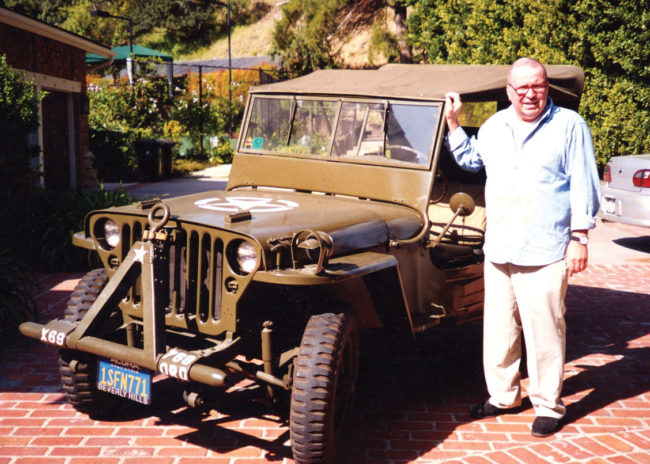
then to a Barrett Jackson auction in 2005 (which listed it as a 1944).
It now resides in the Tebo Museum (private museum approx 400 vehicles) collection (Facebook link) (Flicker Link). Here’s how the jeep is presented:
Back when Frank built his home in 1947 at Palm Springs, California, his daughter noted that the town was still small and the roads rough, so “We . . . needed our jeep to manage the dirt roads, sand dunes, and tumbleweeds,” No indication as to what jeep model this was.
Of course, Frank spent some time in jeeps while acting. For example, this still photo from a French eBay page of Sinatra in a jeep is from his 1958 film “Kings Go Forth”.
According to an April 1966 Esquire magazine article,
“At other times, aiming to please, his men will overreact to his desires: when he casually observed that his big orange desert jeep in Palm Springs seemed in need of a new painting, the word was swiftly passed down through the channels, becoming ever more urgent as it went, until finally it was a command that the jeep be painted now, immediately, yesterday. To accomplish this would require the hiring of a special crew of painters to work all night, at overtime rates; which, in turn, meant that the order had to be bucked back up the line for further approval. When it finally got back to Sinatra’s desk, he did not know what it was all about; after he had figured it out he confessed, with a tired look on his face, that he did not care when the hell they painted the jeep.”
According to the “Remarkable Cars” website, this 1941? MB was used during the filming of the dirty dozen, then purchased by Sinatra, who then gave it to Burt Reynolds. It is now located in the Star Cars Museum in Gatlinburg, Tennessee.
I’m sure there’s much more out there. I’ll add to this thread as I learn more.
Year? CJ-2A Beach Tram on eBay
No pics of the actual slide. The seller wants $23 for it. Unclear where this was taken.
View all the information on eBay
“Slide 1950s Red Star Border Kodachrome Jeep Train on Tropical Resort Beach”
1958 German CJ-3B Manual on eBay
Andy shared this rare CJ-3B manual printed in German currently priced at $59.
